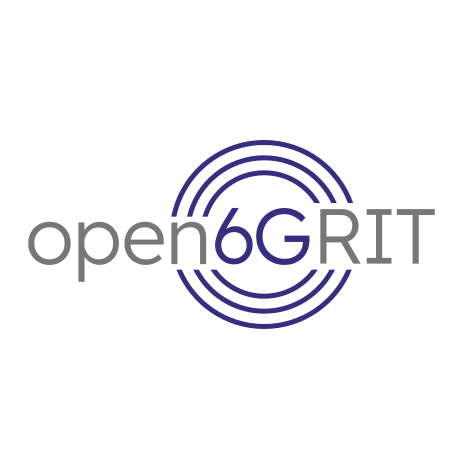
Open Research Infrastructures and Toolkits for 6G (OpenRIT6G) Workshop
8 December 2025
DIGITAfrica is supported by the OpenRIT6G Initiative
Open Research Infrastructures and Toolkits for 6G (OpenRIT6G) Workshop
Based on the experiences gained with 5G and in the light of current international discussions about the beyond 5G
evolution, aka 6G and NextG, it becomes clear, that we won´t have an “one generic network infrastructure fits all
different vertical application needs” environment, but we rather have to envisage an open environment of federated
highly customized private and public networks taking advantage of virtualized modular network architectures.
The complexity is fueled by the increasing diversity of access and backhaul technologies, the deeper / native
integration of AI in networking and applications, changing value chains and increasing diversity of operation models,
and the desire to create local eco systems to maintain digital sovereignty in a world of increasing political conflicts.
How do we setup corresponding open research and development infrastructures for both industry and academia and
what related toolkits and cooperation and federation concepts are needed, to enable efficient and sustainable
research in the different regions of the world.
The need for a scientific instrument, as a reference to a rigorous methodology developed in many scientific domains, is
justified by the emergence of the future Internet including beyond 5G and 6G infrastructures that require adapted and
well-tailored tools for testing and developing trust and confidence regarding the design and deployment phase.
Experimental platforms should be able to address the end-to-end scenario, integrating all technologies and
components but should also enable small-scale, low-cost testbeds for students.
In this regard, the emphasis on open, vendor-neutral technology and application testbeds, along with supporting
software toolkits, is key to education and skill development. This focus is evident in different regional research centers,
which aim to foster local ecosystem development. There is also a growing interest in small-scale, portable testbeds
that allow students to engage with the latest networking technologies in their own environments. This approach is
particularly important for developing countries to align with the 6G vision of creating a network for everyone and to
support the United Nations Sustainable Development Goals (UN SDGs).
Such open platforms will allow researcher and industry to question scientific challenges regarding the future
technologies and services. They will be based on a technology roadmap that will be consolidated on the basis of the
analysis of several inputs provided by the community regarding the wireless technology advances, that are pertinent to
the evolution of new radio (NR) and core network (CN) over the next decade 2020-2030.
It is important to note that initiatives exist at the international level with ambitious projects like EU ESFRI SLICES
(2021-2040, 150M€), in the US (NSF PAWR 2017-2025 120M$, NSF FABRIC 2019-2024 20M€), BRIDGES (2021-2024,
2.5M$) and China (CENI 018-2022 190M€), and efforts also developing in Japan. In addition, open-source communities
developing important components are of utmost importance for test platforms, including O-RAN, ONF and OAI.
We are seeking original, previously unpublished papers empirically addressing key issues and challenges in
experimental digital infrastructures, including wireless, IoT, edge, cloud and applications. We are particularly interested
in papers describing developments, lesson-learned and new results obtained through platforms for at-scale research
mentioned above.
We solicit original papers including but not limited to:
Advanced wireless networking experimentation
● New waveforms;
● Higher frequencies up to THz;
● Next Generation Networks;
● Nomadic Networks
● Dynamic Spectrum and wireless management;
● Integrated sensing and communication;
● Multiple heterogeneous radio management;
● AI/ML support
Testing Smart/intelligent infrastructure operation and management
● Advanced protocols and architecture (virtualization, softwarization, programmability)
● Federation and Interoperability
● AI applied to infrastructure operation and optimization at all layers;
● Generation of data to train algorithms;
● Distribution of intelligence into the Edge of the network;
● RICs, SMOs, and SOM.
Design and validation of new Edge/Cloud/Open RAN and Core Infrastructures for different Vertical
needs
● Software and components deployment, management, and optimization
● Open Source Toolkits
● CI/CD/CT and Infrastructure Openness and Customization
● Distributed resource management
● Geo-distributed data management
● Federated deep-learning
● Use Cases and deployment best practices
● Private and public Campus Networks vs large Carrier networks
Methodology for designing and operating scientific instruments
● Instrumentation and measurement;
● Architecture and APIs;
● Experiment design and life-cycle management;
● Data management and reproducibility;
● Testbed implementation and operation
Organizers – Workshop Co-Chairs CVs
● Serge Fdida, Sorbonne Université, France (co-chair), serge.fdida@sorbonne-universite.fr
● Manu Gosain, Northeastern University, USA (co-chair), agosain@coe.northeastern.edu
● Thomas Magedanz, TU Berlin, Germany (co-Chair), Thomas.magedanz@tu-berlin.de
● Joyce Mwangama, University of Cape Town, South Africa, (co-Chair), joyce.mwangama@uct.ac.za
● Aki Nakao, Tokyo University, Japan, (co-Chair), nakao@iii.u-tokyo.ac.jp
Important dates:
● Workshop Paper Submission Deadline: 15 July 2025
● Paper Acceptance Notification: 1 September 2025
● Camera Ready: 1 October 2025
